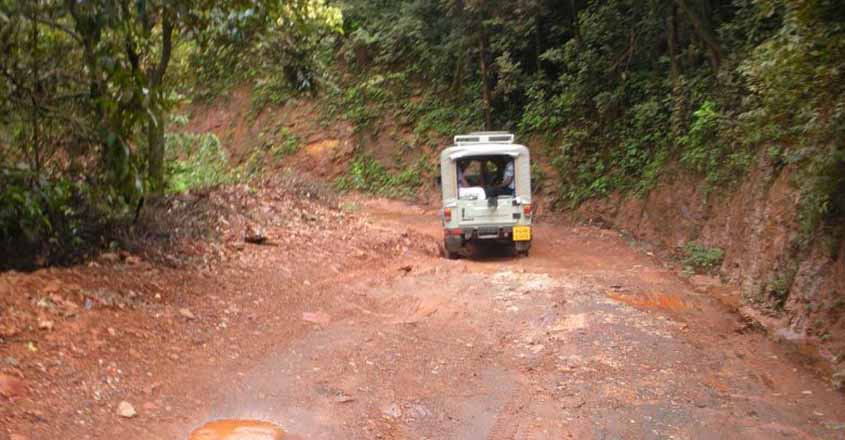Kudajadri – a place for spiritual awakening

The only buildings in the area are the house of the temple 'tantri' (chief priest) and an adjacent shrine.
The only buildings in the area are the house of the temple 'tantri' (chief priest) and an adjacent shrine.
The only buildings in the area are the house of the temple 'tantri' (chief priest) and an adjacent shrine.
A pilgrimage to the Mookambika Temple in Karnataka is not complete without visiting Kudajadri hill in the upper reaches. However, very few devotees make the trip and Kudajadri and Sankara Peedom there remain as pristine locations with greenery, mist, wind, and clouds greeting intrepid travellers.
The only buildings in the area are the house of the temple 'tantri' (chief priest) and an adjacent shrine. Beyond these structures starts a steep climb. Biting cold and strong winds make the ascent difficult. Wide grasslands lead to the Sankara Peedom at the peak and the fog gets thicker at higher altitude.
Travellers would get eager for some sunshine.

At a flat area lies Ganapathy cave, where a priest conducts regular rituals. Further ahead is the peak of the Kudajadri hill, where the cold will bother travellers even at noon. On one side of the hill is a deep ravine and strong winds blowing there make a traveller wonder whether he or she would be carried over the edge and into the depths.
The view from the Kudajadri peak is stunning. A part of the Mookambika sanctuary spread across an area of 247 square km, the place is rich in biodiversity.
Apart from the tantri's house, no other place of stay is available here. However, mendicants, people seeking 'moksha' (salvation), and spiritually inclined persons often spend the night in the open. Remnants of the fires lit by such folk are scattered on the hill.
The path cutting across the grasslands ends near a forest of short trees. From here, travellers have to find their way forward through the thickets. The forested area leads down the hill and at the end is deep cliff. A narrow path lies along the edge of the cliff. A little way along this path leads visitors to a spot which presents an amazing view of the valley below.
Clouds shield the views of the grasslands and a water fall emerges from high up in the hills. Opposite of it is Chitramoola, the cave where the Sage Kola and Sankaracharya meditated and attained enlightenment. The mouth of the cave is about eight feet up from ground level. An iron ladder has been fixed at the spot to help travellers enter Chitramoola.
An all-pervading silence prevails inside the cave and the sound of the roaring wind outside is barely audible. This place of mysterious silence is believed to be the real abode of Goddess Mookambika. According to myth, in the interiors of the cave, amid the silence, the ringing of the bells of the Mookambika Temple can be heard.
There is water spring inside the cave but nobody stays there now.
The silence and the calmness of the cave are certain to stimulate the sub-conscious mind and it was this awakening felt by Sankaracharya that took him from Kerala all the way to the mighty Himalayas, spreading the knowledge he gained.
